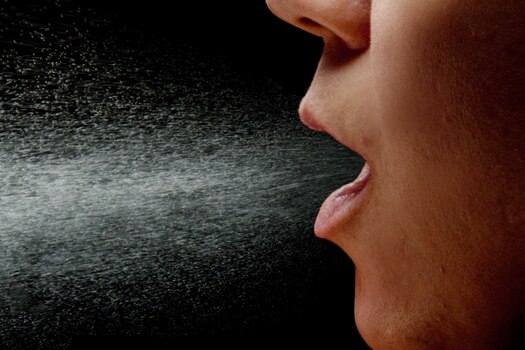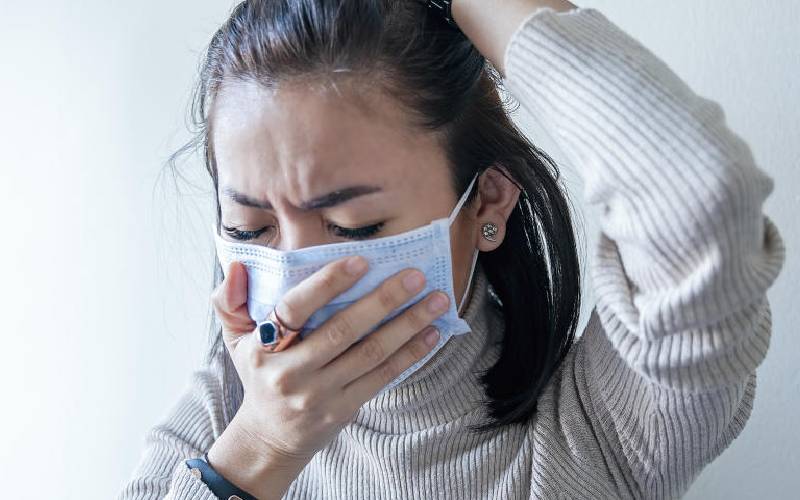Coronavirus
Speaking Or Singing Loudly Could Help To Spread Coronavirus, Scientists Warn

By Mirror
Researchers at the University of Bristol have found that higher volume was associated with an increase in aerosol mass, with the loudest level generating up to 30 times more aerosol mass than the lowest volume
However, they said there were no significant differences in aerosol production between genders or among different genres of music such as choral, musical theatre, opera, jazz, gospel rock or pop.
Culture Secretary Oliver Dowden said: “I know singing is an important passion and pastime for many people who I’m sure will join me in welcoming the findings of this important study.”We have worked closely with medical experts throughout this crisis to develop our understanding of Covid-19, and we have now updated our guidance in light of these findings so people can get back to performing together safely.”
 As part of an ongoing research project, called Perform, the researchers looked at the amounts of aerosols and droplets generated by a large group of 25 professional performers that were up to 20 micrometres (0.02m) in diameter.The singers performed a range of exercises including breathing, speaking, coughing, and singing at a hospital operating theatre with a “zero aerosol” background.
As part of an ongoing research project, called Perform, the researchers looked at the amounts of aerosols and droplets generated by a large group of 25 professional performers that were up to 20 micrometres (0.02m) in diameter.The singers performed a range of exercises including breathing, speaking, coughing, and singing at a hospital operating theatre with a “zero aerosol” background.
Dr Florence Gregson, a researcher at the University of Bristol and first author on study, said using this hospital setting setting meant “any aerosol we detected with our measurements, we could directly attribute only to what the singer had produced”.Our research has provided a rigorous scientific basis for Covid-19 recommendations for arts venues to operate safely for both the performers and audience by ensuring that spaces are appropriately ventilated to reduce the risk of airborne transmissionThe experiments included singing and speaking Happy Birthday at different sound levels, between the ranges of 50-60 decibels (dB), 70-80 dB and 90-100 dB.At the loudest level, singing generated more aerosol particles than speaking but the researchers said that this difference was “very modest”.Based on their findings, the researchers said ensuring adequate ventilation in the venue may be more important than restricting a specific activity.
Jonathan Reid, an expert in aerosol science at the University of Bristol and a corresponding author on the paper, said: “The study has shown the transmission of viruses in small aerosol particles generated when someone sings or speaks are equally possible with both activities generating similar numbers of particles.”Our research has provided a rigorous scientific basis for Covid-19 recommendations for arts venues to operate safely for both the performers and audience by ensuring that spaces are appropriately ventilated to reduce the risk of airborne transmission.”Dr Julian Tang, honorary associate professor in respiratory sciences at the University of Leicester, who was not involved in the study, said: “The risk is amplified when a group of singers are singing together, eg singing to an audience, whether in churches or concert halls or theatres.”He added: “It is a nice study but not exactly representative of the real whole choir dynamic which really needs further study to truly assess the risk of such large volume synchronised singing vocalisations/exhalations.”
Kenya Insights allows guest blogging, if you want to be published on Kenya’s most authoritative and accurate blog, have an expose, news TIPS, story angles, human interest stories, drop us an email on [email protected] or via Telegram
-

 Grapevine2 weeks ago
Grapevine2 weeks agoAlleged Male Lover Claims His Life Is in Danger, Leaks Screenshots and Private Videos Linking SportPesa CEO Ronald Karauri
-

 Grapevine1 week ago
Grapevine1 week agoRussian Man’s Secret Sex Recordings Ignite Fury as Questions Mount Over Consent and Easy Pick-Ups in Nairobi
-

 Investigations5 days ago
Investigations5 days agoMulti-Million Dollar Fraud: Three Kenyans Face US Extradition in Massive Cybercrime Conspiracy
-

 Economy4 days ago
Economy4 days agoIran Demands Arrest, Prosecution Of Kenya’s Cup of Joe Director Director Over Sh2.6 Billion Tea Fraud
-

 News3 days ago
News3 days agoTHE FIRM IN THE DOCK: How Kaplan and Stratton Became the Most Scrutinised Law Firm in Kenya
-

 Business5 days ago
Business5 days agoA Farm in Kenya’s Rift Valley Ignites a National Reckoning With Israeli Investment
-

 Business2 weeks ago
Business2 weeks agoM-Gas Pursues Carbon Credit Billions as Koko Networks Wreckage Exposes Market’s Dark Underbelly
-

 Africa1 week ago
Africa1 week agoFBI Investigates Congresswoman Ilhan Omar’s Husband’s Sh3.8 Billion Businesses in Kenya, Somalia and Dubai















